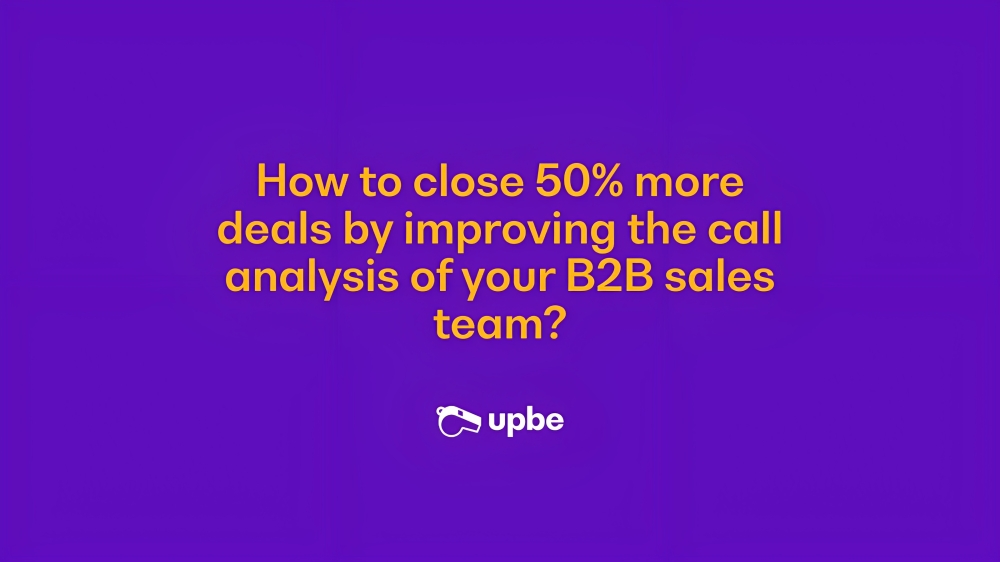
Business intelligence has become an essential tool for B2B companies, enabling strategic and swift decision-making. The combination of BI with other IT solutions facilitates the extraction of useful information, improving decision-making.
In the realm of B2B sales, sales intelligence backed by BI has become fundamental due to rising sales costs and changes in customer purchasing behaviors. Business intelligence allows for better and more sales, provides a competitive advantage, optimizes the approach to limited resources, and improves sales efficiency.
Still don’t know how to apply it to your B2B business? Then, keep reading.
What is business intelligence?
Business intelligence, or BI, involves transforming data obtained from various systems and sources into relevant information for business decision-making. It is crucial to analyze and leverage this data to maximize the performance of the company.
Business intelligence is essential for enhancing sales strategies. For example, by using a BI tool, CRM data and communication channels can be crossed to better understand customer behavior. This allows identifying potential problems and taking corrective actions.
Building an internal BI solution for sales can be a viable option if the necessary resources and time for development are available. However, acquiring an existing BI solution provides immediate access to advanced functionalities, avoiding high development and maintenance costs. Furthermore, pre-built solutions based on machine learning can provide significant competitive advantages.
How is business intelligence used in B2B sales?
There are multiple applications, but possibly the most common are the following:
Analyze and visualize data
By conducting an analysis of your customer data, you will gain insight into their behavior patterns, identify the most successful products, and determine which generate the highest profits for your business, all in an automated manner.
Moreover, thanks to BI you can visualize the results of the analysis in a simple and interactive way through a dashboard that displays visual information, such as graphs and diagrams based on the established key performance indicators.
All the collected data are recorded, organized, and accessible for easy consultation at any necessary time. This availability allows for agile and efficient decision-making based on the stored information.
Identifying ideal customers
In the realm of B2B sales, identifying the ideal customer is crucial. This ideal customer is defined by a set of characteristics that indicate they are the most likely to gain substantial benefits from the product or service offered. Identifying the ideal customer involves analyzing the available data, such as reports that reveal patterns and trends, to understand what types of customers derive the most value from the product.
Refining prospecting campaigns
Business intelligence plays a vital role in storing and automatically analyzing information. With this data, prospecting campaigns can be created that highlight how the product improves efficiency.
Improving customer retention
Nowadays, customers have many options and tend to switch businesses after having one or two bad experiences, but they rarely express the reasons for their departure. This poses a challenge for B2B companies looking to increase customer retention. Business intelligence can help alleviate this burden by allowing a thorough analysis of the customer journey, from start to finish.
Through data analysis, it is possible to gain insights about the duration of the customer relationship before their departure, identify patterns in the types of businesses that have a longer lifespan, and assess the onboarding process. By filling in the gaps with data, the likelihood of customers feeling the need to leave the company is reduced, thereby improving customer retention and satisfaction.
Prevent and solve problems
Business intelligence is not limited to providing historical and current data; it also enables forecasting, problem anticipation, and the design of more effective strategies. This way, you can plan your campaigns more effectively and hire more staff when necessary.
The power of AI applied to business intelligence
Business intelligence applied through artificial intelligence (AI) offers various advantages to improve business decision-making:
- Sentiment analysis: AI has the ability to analyze conversations and detect customer sentiments, which helps tailor the sales message more effectively.
- Offer personalization: AI can provide more accurate product recommendations by thoroughly understanding customer needs.
- Sales prediction: AI also aids in prospect qualification, identifying those with a higher likelihood of purchase and improving sales predictions.
- Reducing customer loss: AI is capable of analyzing customer drop-off patterns, allowing the identification of causes and taking measures to prevent further customer loss.
If you want to combine the power of business intelligence with artificial intelligence in your company, Upbe is your tool. Upbe is an AI software that uses business intelligence to analyze data and provide valuable information to your salespeople, helping them make accurate decisions during their calls.
Thanks to Upbe, they will have real-time access to information extracted from the analysis of your customer data, including the emotions of each one of them. This will allow them to steer their discourse efficiently and know when the ideal moment is to close the sale.
Team managers also benefit, as Upbe provides them with reliable real-time information about their sales teams’ calls. This allows them to make informed decisions for their campaigns, provide adequate training to the team, and achieve better results.
Request a free demo and start improving your decision-making to increase your sales.





2 Comments
Comments are closed.